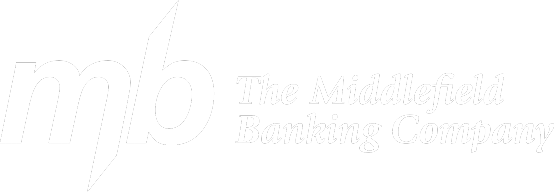Student Loans Guide: What You Need to Know About Applying, Borrowing, Repaying, and Refinancing
Posted On: August 7, 2024 by The Middlefield Banking Company in: Personal Loans Student

Many students and their families are starting to navigate the complex world of student loans. Whether you’re just starting your college journey or looking to refinance existing loans, understanding the ins and outs of student loans is crucial. This comprehensive guide will walk you through the entire process, from applying to refinancing. Let’s dive in!
Applying for Student Loans
The first step in securing student loans is to complete the Free Application for Federal Student Aid (FAFSA). This form determines your eligibility for federal grants, work-study programs, and loans. It’s essential to fill out the FAFSA as early as possible to maximize your financial aid opportunities.
Information Needed for FAFSA:
- Your Social Security number
- Your parents’ Social Security numbers (if you are a dependent student)
- Your driver’s license number (if you have one)
- Your Alien Registration number (if you are not a U.S. citizen)
- Federal tax information or tax returns, including IRS W-2 information, for you (and your spouse, if you are married) and for your parents if you are a dependent student
- Income and asset information (if required)
Once you’ve explored federal loan options, you may need additional funding. This is where private student loans come in. Middlefield Bank, through College Ave Student Loans, offers flexible and competitive private loan options to cover any gaps in your education financing.
Information Needed for Private Loan Applications:
- Your Social Security number
- Your driver’s license number
- Your current address and previous addresses (if applicable)
- Your employment information, including employer name, phone number, and length of employment
- Your gross monthly income and most recent paystub
- Financial information, including bank statements and records of investments
- The desired loan amount
- If you have a co-signer, their personal and financial details will also be required
Borrowing Student Loans
When borrowing student loans, it’s important to understand the different types available:
- Federal Loans: These include Direct Subsidized Loans, Direct Unsubsidized Loans, and PLUS Loans. Federal loans often have lower interest rates and more flexible repayment options.
- Direct Subsidized Loans: These loans are available to undergraduate students with demonstrated financial need. The U.S. Department of Education pays the interest on these loans while you’re in school at least half-time, during the grace period, and during deferment periods.
- Direct Unsubsidized Loans: These loans are available to both undergraduate and graduate students, and financial need is not required. Unlike subsidized loans, you are responsible for paying the interest during all periods.
- Direct PLUS Loans: There are two types of PLUS loans: Grad PLUS Loans for graduate or professional students, and Parent PLUS Loans for parents of dependent undergraduate students. These loans can help cover education expenses not met by other financial aid. A credit check is required for these loans.
- Direct Consolidation Loans: This option allows you to combine all your eligible federal student loans into a single loan with a single loan servicer. This can simplify repayment and potentially lower your monthly payment.
- Private Loans: Offered by banks and credit unions, private loans can help cover costs not met by federal loans. Middlefield Bank’s partnership with College Ave provides tailored loan options to meet your specific needs.
Repaying Student Loans
Repayment typically begins six months after graduation. Federal loans offer various repayment plans, including income-driven options that adjust your monthly payment based on your income. It’s crucial to choose a plan that fits your financial situation to avoid default.
- Standard Repayment Plan: Fixed monthly payments over 10 years. This plan usually results in paying less interest over time.
- Graduated Repayment Plan: Payments start low and increase every two years, making it easier to manage payments early in your career.
- Extended Repayment Plan: Allows for a longer repayment period of up to 25 years, with either fixed or graduated payments. This plan can lower monthly payments but may result in paying more interest over time.
- Income-Driven Repayment Plans:
- Income-Based Repayment (IBR): Payments are capped at a percentage of your discretionary income and recalculated annually based on your income and family size.
- Pay As You Earn (PAYE): Similar to IBR, but generally offers lower monthly payments and is available to newer borrowers.
- Revised Pay As You Earn (REPAYE): Extends PAYE to all borrowers, regardless of when they took out their loans.
- Income-Contingent Repayment (ICR): Payments are the lesser of 20% of your discretionary income or what you would pay on a fixed plan over 12 years, adjusted according to your income.
For those with private loans, there are often flexible repayment terms and tools to help manage your payments effectively.
Refinancing Student Loans
Refinancing can be a smart move if you’re looking to lower your interest rate or monthly payment. By refinancing, you take out a new loan to pay off your existing loans, potentially saving money over time. Middlefield Bank, in collaboration with College Ave, provides competitive refinancing options to help you achieve your financial goals.
Steps to Refinance:
- Gather Financial Information: Collect your current loan details, income information, and credit report.
- Find a Lender: Combining multiple loans into one should simplify your life. With Middlefield Bank’s College Ave student loan refinancing, you can complete an easy online application, get your refinance rate in 60 seconds, and build a repayment plan that fits your budget. Learn more here.
- Apply: Submit your application with the chosen lender. If approved, the new lender will pay off your existing loans.
- Start Repaying: Begin making payments on your new loan, ideally with a lower interest rate or monthly payment.
Why Choose Middlefield Bank and College Ave?
Middlefield Bank, in partnership with College Ave Student Loans, offers a seamless and supportive loan experience. With a simple application process, flexible loan terms, and excellent customer service, we are here to help you every step of the way. Learn more here and start your application today: College Ave Student Loans with Middlefield Bank.

0 comments